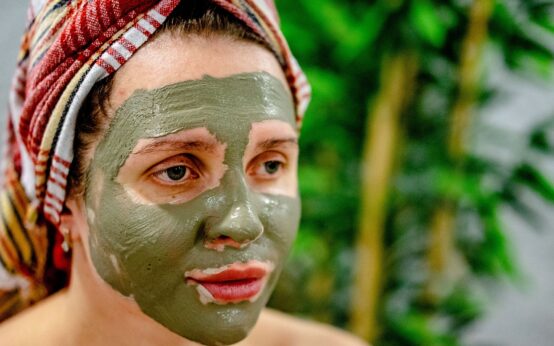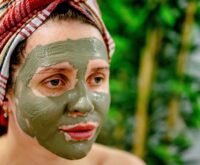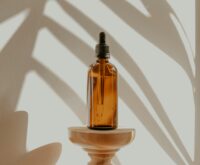Have you ever looked at the ingredient list on your skincare products and wondered what all those long, unpronounceable names are? If so, you’re not alone. Many people are increasingly turning to natural skincare products in pursuit of healthier, eco-friendly beauty routines. But where should you start if you’re new to the world of natural skincare? Let’s guide you through the basics, from understanding what makes a product “natural” to choosing the right ones for your skin type.
What Are Natural Skincare Products?
Natural skincare products are made from ingredients sourced from nature. These ingredients are typically derived from plants, minerals, and, occasionally, animal by-products that are not synthesized in a lab. Unlike conventional skincare items, natural products avoid synthetic chemicals like parabens, sulfates, and artificial fragrances, which can be harsh on your skin and harmful to your health over time.
The Importance of Understanding Labels
When shopping for natural skincare products, it’s crucial to understand labels. Terms like “organic,” “eco-friendly,” or “botanical” are often thrown around but can mean different things depending on regulations and brand guidelines. Familiarizing yourself with common certifications, such as USDA Organic or EcoCert, can help you make informed decisions about the products you choose.
Table: Common Certifications in Natural Skincare Products
| Certification | Description |
|---|---|
| USDA Organic | Products contain at least 95% organic ingredients. |
| EcoCert | At least 95% of ingredients are of natural origin, including water. |
| COSMOS | Benchmark for European natural cosmetics; at least 20% organic for leave-on products. |
| Leaping Bunny | Ensures cruelty-free production without animal testing. |
Benefits of Using Natural Skincare Products
Switching to natural skincare has a host of benefits. It offers a gentler approach to skincare, which can be especially beneficial if you have sensitive skin or allergies. Natural products tend to be more sustainable, supporting eco-friendly practices that benefit the environment. Below, we break down these benefits in more detail.
Gentler on Your Skin
Natural skincare products typically include fewer irritants, making them suitable for those with sensitive or problematic skin. Ingredients like aloe vera, chamomile, and tea tree oil are often used for their soothing, anti-inflammatory properties.
Environmentally Friendly
Many natural skincare brands emphasize sustainability, using environmentally-friendly packaging and sourcing practices. By choosing such products, you’re supporting brands that prioritize reducing their carbon footprint and contributing to the planet’s well-being.
Ethical Considerations
Opting for natural skincare products can also be an ethical choice. Brands committed to using cruelty-free and fair-trade ingredients ensure that no harm is done to animals or workers in the production process.

How to Choose the Right Natural Skincare Products
Navigating the world of natural skincare involves understanding your skin type and what it needs. Not every natural product will work for every person, so it’s essential to tailor your choices based on your skin’s characteristics.
Identifying Your Skin Type
The first step in choosing the right natural skincare products is identifying your skin type. This can be done by observing how your skin behaves throughout the day.
- Normal Skin: Rarely experiences breakouts, balanced oil production.
- Dry Skin: Feels tight, especially after washing; may appear flaky.
- Oily Skin: Shiny appearance with potential for regular breakouts.
- Combination Skin: Oily in some areas (typically the T-zone) and dry in others.
- Sensitive Skin: Often reacts with redness, stinging, or burning.
Selecting Ingredients Based on Skin Type
Once you know your skin type, you can choose ingredients that suit your skin’s needs. Here’s a short guide to help you select beneficial natural ingredients:
Table: Natural Ingredients for Different Skin Types
| Skin Type | Recommended Ingredients |
|---|---|
| Normal | Jojoba oil, rice extract, rose water |
| Dry | Hyaluronic acid, shea butter, squalane |
| Oily | Tea tree oil, witch hazel, rosehip oil |
| Combination | Aloe vera, green tea extract, argan oil |
| Sensitive | Chamomile, calendula, oatmeal |
Building a Basic Natural Skincare Routine
Creating an effective skincare routine doesn’t have to be complicated. By focusing on simple, consistent care with natural products, you’ll encourage healthier, glowing skin.
Cleanse
Cleansing is the cornerstone of any skincare routine, and it’s no different for a natural regimen. Opt for gentle, sulfate-free cleansers that won’t strip your skin of its natural oils. Natural options include products featuring ingredients like coconut oil and essential oils for a spa-like cleansing experience.
Tone
Toning balances your skin’s pH levels and prepares it for subsequent treatments. Rose water or witch hazel toners can be excellent natural options. Both are gentle and provide calming effects while removing any leftover impurities.
Moisturize
Every skin type needs hydration, and there are countless natural moisturizers to choose from. Lightweight options like aloe vera gel work well for oily skin, while heavier creams with ingredients like shea butter can benefit those with dry skin.
Protect
No skincare routine is complete without sun protection. Even if you’re using natural skincare products, it’s vital to apply a broad-spectrum SPF. Some natural options offer physical barriers like zinc oxide that shield your skin without harmful chemicals.

Transitioning to Natural Skincare
Switching from conventional to natural products can seem daunting, but you can ease the transition with small, manageable steps.
Gradual Change is Key
Begin by replacing one product at a time. This approach allows your skin to adjust slowly and helps you identify if any new product causes a reaction.
Be Patient
As with any skincare transition, patience is crucial. Natural products may take longer to show effects due to their gentle nature, but with consistent use, you’ll likely see visible results over time.
Potential Challenges and Solutions
It’s normal to encounter a few hiccups when you’re starting on a natural skincare journey. Understanding these challenges and how to address them will keep you encouraged to continue.
Cost Considerations
Natural products often come at a higher price point because of sourcing and production ethics. However, investing in these products means you’re getting quality and supporting sustainable practices. Look for multipurpose products that can serve different roles in your routine or explore DIY alternatives to make at home.
Adjusting to New Textures and Scents
Natural ingredients can sometimes feel or smell different than synthetic ones. While these changes can seem strange, they are a testament to the purity of the products. Brands typically use essential oils for fragrance, offering a more authentic scent profile.
Ingredient Sensitivities
Even natural ingredients can cause reactions in some individuals. Patch testing new products can avert potential issues, allowing you to gauge a product’s safety before wholesale use. Simply apply a small amount on your wrist or behind your ear and wait 24 hours.

Conclusion
Making the switch to natural skincare products can be a rewarding experience, allowing you to care for your skin and the environment we share. With a little patience and research, you’ll find products that match your needs and reflect your commitment to sustainable living. Your skincare journey is unique, and the shift to natural doesn’t have to be all or nothing. Try integrating just a couple of products at first and notice how your skin feels and looks.
If you’re ready to embark on this path, don’t hesitate to customize the insights here based on your specific skin type and concerns. Remember, the journey to healthier skin is as much about the process as it is the results. Here’s to a natural, nurturing skincare adventure that puts your skin’s health, your ethical values, and our planet at the forefront!

 Guide to the Best Anti acne Products for Clear Skin
Guide to the Best Anti acne Products for Clear Skin  Beginner’s Guide To Rheumatoid Arthritis: What You Need To Know
Beginner’s Guide To Rheumatoid Arthritis: What You Need To Know  How To Meal Prep For The Week: A Beginner’s Guide
How To Meal Prep For The Week: A Beginner’s Guide  How To Create A Skincare Routine For Oily Skin
How To Create A Skincare Routine For Oily Skin  The Best Ingredients For Anti-Aging Skincare
The Best Ingredients For Anti-Aging Skincare  Skincare Myths That Are Wrecking Your Glow
Skincare Myths That Are Wrecking Your Glow  The Ultimate Guide To Sunscreen: What You Need To Know
The Ultimate Guide To Sunscreen: What You Need To Know  Guide to the Best Anti acne Products for Clear Skin
Guide to the Best Anti acne Products for Clear Skin  How To Choose The Right Moisturizer For Your Skin Type
How To Choose The Right Moisturizer For Your Skin Type